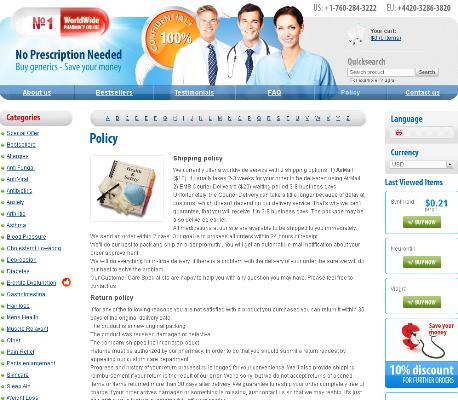| Royal City Drugs |
To Visit Online Pharmacy Click HERE ↓
Priligy and Alcohol: What You Should Know
What Is Priligy and How It Works
Priligy belongs to the class of medications called selective serotonin reuptake inhibitors (SSRIs) and is specifically designed to treat premature ejaculation in men. It works by increasing the level of serotonin in teh nervous system, which helps to delay ejaculation and improve control over it. When a person takes Priligy, it is rapidly absorbed into the bloodstream and begins to take effect within one to three hours.
| Factor | Effect |
|---|---|
| Active Ingredient | Dapoxetine |
| Purpose | Delayed ejaculation |
| Absorption Time | 1-3 hours |
This makes it a convenient option for those seeking to manage this condition.
Alcohol’s Effect on Priligy’s Efficacy

While Priligy is designed to help manage premature ejaculation, adding alcohol to the mix can signifantly reduce the drug's efficacy. Alcohol has a tendency to lower inhibitions and impair judgment, wich can counteract Priligy's intended effects. Priligy works by increasing serotonin levels in the brain, helping to delay ejaculation. However, alcohol can interfere with this delicate balance, making it harder for Priligy to achieve its full potential. Consequently, users might find that they do not recieve the expected benefits when combining these two substances.
Potential Side Effects When Mixing Priligy and Alcohol
Mixing Priligy and alcohol can lead to several concerning side effects that users should be aware of. When consumed together, the two substances may intensify side effects such as dizziness, fatigue, and difficulty concentrating. This combination can lead to an increased risk of accidents, such as falls or mishaps while driving, largely due to the enhanced sedative effects. Furthermore, alcohol can exacerbate the headaches and nausea sometimes associated with Priligy.
Cardiovascular issues are another important aspect to consider. The concurrent use of Priligy and alcohol has been known to strain teh heart, leading to symptoms like palpitations or an irregular heartbeat. For individuals with underlying heart conditions, this could pose a significant health risk. It's crucial to monitor any unusual physical reactions during co-use.
Finally, alcohol can impact the metabolism of Priligy, reducing its effectiveness. This interaction means that the intended benefits of Priligy may not be fully realized, which could be disappointing and potentially problematic for those relying on the medication for premature ejaculation. Given these potential side effects, users should be well-informed and cautious.
Clinical Studies on Priligy and Alcohol Interaction

Clinical studies investigating the interaction between Priligy and alcohol have provided valuable insights. One such study examined the pharmacokinetics of Priligy when alcohol is consumed. Results indicated that alcohol did not significantly alter the absorption rate of Priligy. However, the combination did not enhance the efficacy of Priligy for premature ejaculation.
Another study investigated the side effects experienced by participants who took Priligy alongside alcohol. It was found that adverse effects like dizziness, nausea, and headaches occurred more frequently than in those who consumed Priligy alone.
The clinical trials highlighted that although there is no severe contraindication, co-consumption of alcohol and Priligy should be approached cautiously. Medical experts Recomend minimizing alcohol intake to mitigate potential side effects and achieve optimal results. The findings underline the importance of consulting healthcare providers for personalized advice.
Expert Recommendations on Priligy and Alcohol Use
Leading healthcare professionals recommend that individuals avoid consuming alcohol while taking Priligy due to potential interactions. Alcohol can amplify the occurrence of side effects like dizziness and fainting, which are already risks when using Priligy. Mixing the two substances may impair judgment and coordination, creating a hazardous situation, especially when driving or operating machinery. Experts also caution that alcohol may reduce the drug's efficacy, as it can counteract the benefits Priligy offers for managing premature ejaculation. It is advisable to consult your healthcare provider for personalized advice.
| Impact | Recommendation |
|---|---|
| Increased Side Effects | Avoid Alcohol |
| Reduced Efficacy | Consult Healthcare Provider |
User Experiences: Priligy and Alcohol Co-use
Many users report mixed experiences when combining Priligy and alcohol. Some have shared positive outcomes, noting that moderate alcohol consumption did not significantly impact the efficacy of Priligy. However, others have faced notable side effects. For instance, individuals have mentioned that even light drinking could exacerbate the side effects of Priligy, such as dizziness and nausea. This duality in user reports suggests that the interaction between Priligy and alcohol might vary from person to person.
On forums and review platforms, anecdotes about increased heart rate and drowsiness are common. Some users have described feeling excessively tired or experiencing headaches, especially when consuming alcohol in larger quantities while on Priligy. These experiences indicate that the combination may amplify the medication’s side effects, making it neccessary to exercise caution.
Overall, personal accounts emphasize the need for careful consideration and moderation when it comes to alcohol use with Priligy. It is crucial for users to pay attention to their body's reactions and consult healthcare providers for personalized advice. More information, further details.






Email Us
Fill out all the fields below and press submit, a rep will contact you as soon as possible.

